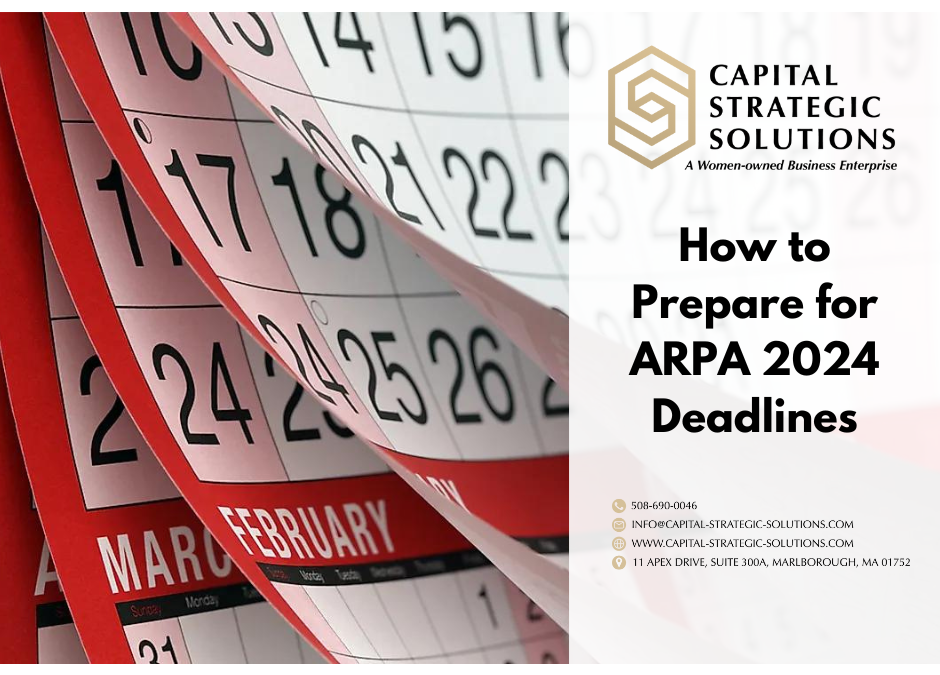Only one year remains for cities and towns to “obligate” their funding from the American Rescue Plan Act (ARPA). By December 31, 2024, cities, towns, and other municipal entities must have their available funds “obligated.” In Massachusetts, some cities and towns may be asked to obligate these funds even sooner for portions of their ARPA allocations that flow first through their respective Counties.
In November 2023, the US Treasury Department issued a new Interim Final Rule to amend and clarify the definition of an “obligation” under the ARPA legislation. Treasury also held an informational webinar on the topic and published a Quick Reference Guide highlighting key facts of the Interim Final Rule. But what does all of this mean for Massachusetts Cities and Towns, and does it depend on which County your municipality falls within?
It’s natural for publicly funded projects to face challenges, delays, and turbulence in the many stages of the process, but with less than one year left to obligate funding, the clock is ticking to overcome those challenges and effectively utilize this available funding. Because ARPA represents such a unique and once-in-a-lifetime opportunity, making full use of the funds is essential to community growth. Here are some quick tips for what communities can do over the next few months:
- Understand what the term “obligation” means in the legislation. Treasury defines this as, “An order placed for property and services and entry into contracts, sub-awards, and similar transactions that require payment.”
- Cities and Towns should either have a signed contract in place and/or purchase order issued prior to the 12/31/24 deadline.
- Subrecipients are not required to separately obligate funds they have been awarded. If funds have been issued to a subrecipient, Treasury considers these funds as being obligated.
- Municipalities that receive some of their ARPA funds through functioning Counties should be aware of their grant agreement deadlines, which in most cases requires an earlier deadline to obligate or spend ARPA funds.
- Counties that distribute ARPA funds to cities and towns for projects have the authority to reallocate unused funds (municipal allocations) if they have not been “obligated” to an approved project. Given that these changes and reallocation of funds will need to occur prior to the December 31, 2024 deadline, it is reasonable to assume that Counties may require obligations be done sooner than December so that they have time to reallocate, if necessary.
- Administrative and compliance-related costs can be covered past the December 2024 deadline. Treasury will be issuing reporting guidance that may require that cities and towns provide estimates and a plan on how these funds will be spent.
- Further changes may be indicated when Treasury issues the “Final Rule” with regard to obligations.
Since 2021 Capital Strategic Solutions has been assisting communities in the many phases of ARPA. Whether it be Treasury Compliance, Eligibility and Reporting, Outreach and Engagement, or assisting communities with County ARPA project applications and reporting, our team has walked through the ARPA process with communities of all sizes. Our team of municipal experts has become well versed in the many complexities of ARPA, and the common challenges communities face when managing their ARPA funding.
If you need help with any ARPA related activities, please feel free to reach out to our Lead ARPA Manager, Jennifer Thompson at jennifer@capital-stratgeic-solutions.com
For information on the Obligation Final Rule of, visit; https://home.treasury.gov/system/files/136/Obligation_Interim_Final_Rule_2023.pdf

